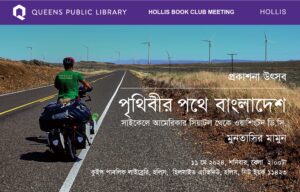International Coastal Cleanup | 2008
The Big Cleanup
The International Coastal Cleanup returned to Cox’s Bazar after a year and with it the spirit of environmentalism returned. I admit it would be harsh to say that environmentalism is absent throughout the year in Cox’s Bazaar but the truth of the matter is that the cursory round-the-year effort to keep the beach clean is more of a second thought than anything else. That is exactly why days such as the International Coastal Cleanup are of such importance; they point to the future, show us where we should be, while also not waiting for the process to start. The International Coastal Cleanup is a day that forces change rather than letting it happen, if only that could be recreated throughout the year across coastlines around the country then it would truly be something.
For the second year in a row Banglalink sponsored the coastal cleanup and they were not short of help as children and adults alike came from all over town and even from Dhaka to help out with the project. It was a truly encouraging sight to see so many young children helping out and trying to clean the beach as best as they could. After large swathes of  the main beach had been cleared they scattered far and wide to see what else they could do. The mix was perfect for the event as over 100 university students made their way down from Dhaka and were joined by roughly 200 school children from Cox’s Bazar. With designated team leaders from the universities taking charge of the younger participants, groups of students took to the beach in a swarm of activity. They attacked the golden sand with vigour picking up everything from plastic coffee cups, to cigarette butts and driftwood.
the main beach had been cleared they scattered far and wide to see what else they could do. The mix was perfect for the event as over 100 university students made their way down from Dhaka and were joined by roughly 200 school children from Cox’s Bazar. With designated team leaders from the universities taking charge of the younger participants, groups of students took to the beach in a swarm of activity. They attacked the golden sand with vigour picking up everything from plastic coffee cups, to cigarette butts and driftwood.
The day started early with the assorted media dragging themselves out of bed, after having been put to sleep by the constant yet gentle crash of the waves. Having been housed in a wonderful hotel, the beach was literally at our doorstep and it did not take long to see the problem people were trying to fight. I stepped out under the bristling sun squinting, still trying to adjust to the light when out of the corner of the eye I spotted three stray dogs on the beach tearing a ragged fish net to pieces. The little pieces were scattered across the beach as the rising tide took a few fragments with it and the rest were left unattended on the beach. The awful thing about a situation like that is that the pollution is two-fold. The scraps of net which made it into the water, could potentially trap and kill fish and sea-life while the pieces which lay on the beach pose an environmental threat. These thoughts only occurred to me when I sat at my computer 300 Km away from the incident. This is the kind of reactionary thinking which is exactly why the problem exists.
Anyway, after seeing the dogs scuffle it was time for me to do the same as I got on one of the overpriced rickshaws to take me to the event. The scuffle occurred when I tried to pay the rickshaw puller, as he seemingly thought I came from Mars and would hand out Tk 100 notes like Obama uses the word change. Along the way exactly as the event was supposed to start there was a vicious downpour which delayed the cleanup. After an hour of rain Mother Nature was ready to be pruned as the students wrested control of the beach. In the battle against coastal pollution, this would be their Normandy.

I roamed the beach as I found the sight of children in a white t-shirt, black cap and one blue glove quite amusing. It led to another thought, did the organisers purchase a great number of right-handed gloves (as I assumed more of the people there were right handed) or did they buy the gloves in pairs and just hand them out randomly. I should have pressed them for an answer, but I did not. It occurred to me that if a right-handed child was given a left handed glove then there was more than a chance that his work was inhibited by having to use the wrong hand. Gloves aside it was great to see the spirit and zeal everyone put into their effort. Most of them were fasting but still found the energy to pick up trash under a blazingly hot sun and with muggy weather. Maybe it would have better if they started their trash pick up in the rain.
IUB sent a large group of students and they were joined by others from BRAC, NSU and IBA as they pushed themselves as hard as they could. No one was treating it like a holiday, at least that’s how they tried to make it seem and I must say it worked well. I was convinced they were all there to help the environment and I’m sure in their minds they were convinced as well. With what would have been lunchtime if-it-was-not-Ramadan approaching the work started to die down as everyone frantically collected their oversized plastic bags, tied them up, and stacked them beside each other. It was a sight to see as bag after bag was placed and only then could the cumulative effect of their work be seen. In just a few hours they had found enough trash to fill a truck. The day had been a success, but for it truly to have a lasting legacy such efforts would have to become more commonplace. With the young ones knackered it was time for a few people (whom I will not name) to have lunch while the rest looked on longingly.

The students with a small section of the rubbish they collected.
That evening I went for a walk on the beach, slippers in hand as romantic as it can get and painfully stepped on a blue piece of plastic trash. I picked it up and thought of the huge pile of rubbish I saw earlier in the day and came to a conclusion. If the children were given the proper-handed gloves, then the amount of rubbish could possibly have been doubled, and maybe this piece of trash would have been picked up as well. Oh well, at least it’s a start. Here’s to two gloves next year.
Nader Rahman | The Daily Star Weekend Magazine
Volume 7 Issue 37| September 12, 2008 |
http://archive.thedailystar.net/magazine/2008/09/02/environment.htm








